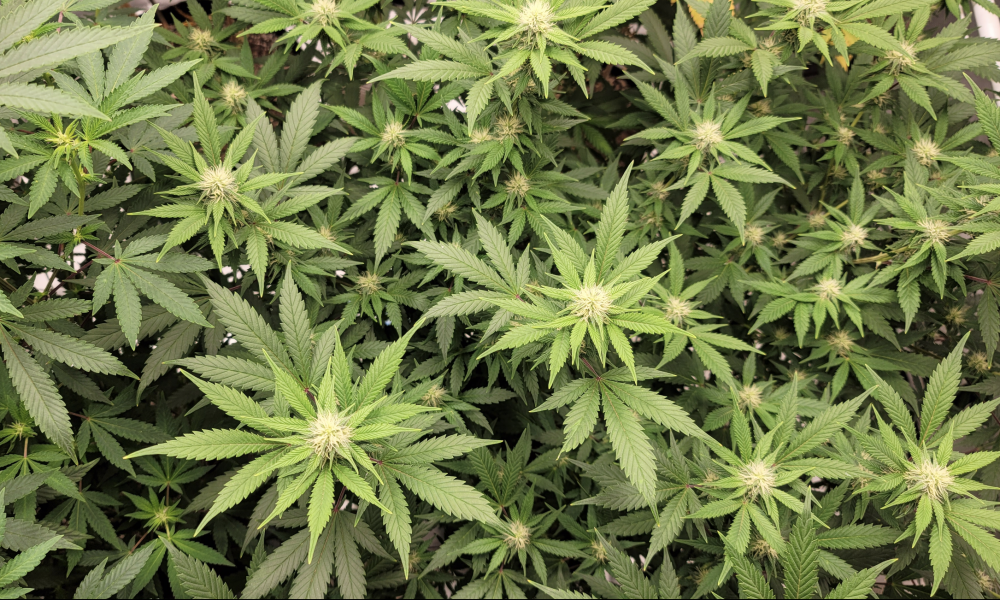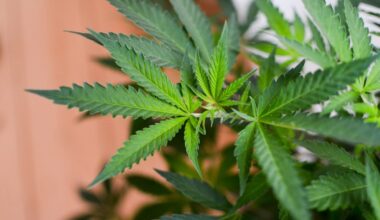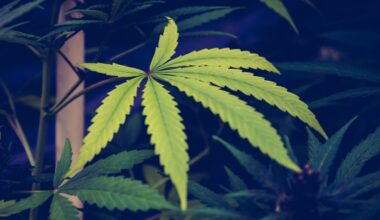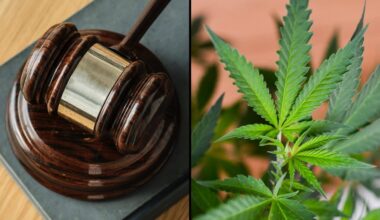New York regulators on Thursday approved a second batch of applications for recreational marijuana cultivators as the state prepares for the launch of retail sales “later this year.”
The Cannabis Control Board (CCB) granted an additional 36 cultivator licenses for existing hemp businesses as part of the state’s seeding opportunity initiative. The body approved the first 52 applications last month, and regulators will continue to review the bids on a rolling basis.
NEW: The New York State Cannabis Control Board has approved 36 more adult-use cannabis cultivation licenses for farms across the state.
NY’s family farmers are growing product to be sold THIS YEAR at retail dispensaries owned by NYers impacted by the criminalization of cannabis.
— NYS Office of Cannabis Management (@nys_cannabis) May 5, 2022
Gov. Kathy Hochul (D) signed a bill from Assembly Majority Leader Crystal Peoples-Stokes (D) and Sen. Michelle Hinchey (D) to create conditional licenses in February. The intent is to allow existing hemp operators to get a head start on growing marijuana to meet demand for the forthcoming industry.
Office of Cannabis Management (OCM) Executive Director Chris Alexander affirmed on Thursday that the state is still on track to launch retail sales “later this year,” adding that, “so far, this has had a tremendous impact in our communities statewide.”
Regulators also advanced a rule in March to make it so people with prior marijuana convictions, or whose family members have been harmed by criminalization, will get the first round of adult-use marijuana retailer licenses—ahead of existing medical cannabis businesses. A recent poll found that most New Yorkers voters are against that proposal.
“Through the seeding opportunity initiative, these farmers are cultivating the first products that will be sold in dispensaries owned by justice-involved New Yorkers by the end of the year,” Alexander said on Thursday. “I think we have another 100 or so [cultivator licenses] that will coming along the pipeline.”
It’s been about a year since an adult-use legalization bill was enacted into law, and regulators have spent months preparing for implementation.
Conditional cultivator licensees needed to have been authorized by the state Department of Agriculture to grow hemp as of December 31, 2021—and have grown the crop for two of the past four years. They’re also required to “participate in an environmental sustainability program and a social equity mentorship program.”
During last month’s CCB meeting, regulators also approved revised regulations to allow medical marijuana patients to grow their own plants for personal use following a public comment period on initial rules that were proposed last year.
In general, the rule would allow registered patients and caregivers to grow up to six plants, only three of which could be mature. They could possess up to five pounds of cannabis derived from those plants, which is consistent with the state’s adult-use legalization law.
Meanwhile, New York lawmakers recently sent a budget proposal to the governor’s desk that includes provisions to let marijuana businesses take state tax deductions that are available to other industries despite an ongoing federal ban on cannabis. That was signed into law.
Sen. Jeremy Cooney (D) filed a standalone bill in December seeking a similar carve-out for the state’s burgeoning cannabis market. Assemblymember Donna Lupardo (D) followed suit in her chamber. Cooney also filed a bill last month to allow regulators to disclose certain information about cannabis licensees to financial institutions to promote marijuana banking.
—
Marijuana Moment is already tracking more than 1,000 cannabis, psychedelics and drug policy bills in state legislatures and Congress this year. Patreon supporters pledging at least $25/month get access to our interactive maps, charts and hearing calendar so they don’t miss any developments.![]()
Learn more about our marijuana bill tracker and become a supporter on Patreon to get access.
—
As it stands, adults 21 and older can possess and publicly consume cannabis, as well as gift marijuana to other adults as long as they aren’t being compensated. But regulators are still finalizing licensing rules, and there are currently no retailers that are authorized to sell cannabis for adult use in the state.
Hochul has repeatedly emphasized her interest in efficiently implementing the legalization law.
The governor released a State of the State book in January that called for the creation of a $200 million public-private fund to specifically help promote social equity in the state’s burgeoning marijuana market.
That proposal was also cited in the governor’s executive budget, which was released in January. The budget also estimated that New York stands to generate more than $1.25 billion in marijuana tax revenue over the next six years.
Hochul said that while cannabis business licenses have yet to be approved since legalization was signed into law last year, the market stands to generate billions of dollars, and it’s important to “create opportunities for all New Yorkers, particularly those from historically marginalized communities.”
Enacting legislation that expedites licensing could help the state reduce the number of businesses that are effectively using the legal “gifting” provision of the state’s marijuana law to give away cannabis for “free” if a non-marijuana-related purchase is made.
New York regulators recently issued warnings to more than two dozen businesses that they allege are either illegally selling marijuana without a license or exploiting the “gifting” component.
CCB Chair Tremaine Wright talked about the complicated legal landscape that’s developed in New York as the state moves from prohibition to legalization at a community board event late last month.
Next Thurs., 4/28 join Manhattan CBs & experts for DOWNTOWN CANNABIS: a conversation about legal cannabis businesses at the Sheen Center, 18 Bleecker St. Register: https://t.co/a9GM010bWo #CannabisCommunity #NYCannabis @CB2_Manhattan @CB3Man @CommunityBoard1 @ManhattanBoard4 pic.twitter.com/UgWjtHvIbk
— Community Board 2M (@CB2_Manhattan) April 21, 2022
She stressed that New York’s marijuana law was specifically crafted with those most impacted by criminalization in mind, and so regulators are working to ensure that people who engaged in previously illegal activities and were caught up in the war on cannabis have a seat at the table in the new industry.
“You definitely have space and you definitely have skills and you definitely have a book of business that somebody probably wants access to,” Wright said. “So what I want you to realize is that you are valuable.”
But it’s a different story for those who have exploited this transitionary period by selling marijuana at unlicensed shops, she said. While there may understandably be some confusion about the rules since certain cannabis activities are now legal, Wright said that regulators are cracking down on bad actors and encouraging communities to help them identify unauthorized sellers.
However, she stressed that they do not want police to play an enforcement role because they are “moving away from criminal action.”
Here are some other ways that New York lawmakers and regulators are working to build upon the legalization law as the state prepares to implement retail sales:
In February, for example, a state senator filed a bill that would promote recycling in the marijuana industry once retail sales officially launch.
Hinchey is also sponsoring that legislation, which would require cannabis shops to apply a $1 deposit for any marijuana products sold in single-use plastic containers and also reimburse consumers for that fee if they return the container.
The senator is also behind a separate bill filed last year that would prioritize hemp-based packaging over synthetic plastics for marijuana products.
The recycling bill is identical to an Assembly version filed by Assemblywoman Patricia Fahy (D) last year.
The state Department of Labor separately announced in recent guidance that New York employers are no longer allowed to drug test most workers for marijuana.
Meanwhile, a New York lawmaker introduced a bill in June that would require the state to establish an institute to research the therapeutic potential of psychedelics.
Another state legislator filed legislation in December to legalize psilocybin mushrooms for medical purposes and establish facilities where the psychedelic could be grown and administered to patients.
Separately, the mayor of New York City says he’s looking into the idea of authorizing marijuana to be grown in greenhouses on the rooftops of public housing buildings—an ambitious proposal that’s unlikely to sit well with the federal government, which provides funding to support the NYC Housing Authority (NYCHA).
GOP Congressman Requests Hearing On FDA’s Failure To Set CBD And Delta-8 THC Regulations
Photo courtesy of Mike Latimer.
Medical Disclaimer:
The information provided in these blog posts is intended for general informational and educational purposes only. It is not a substitute for professional medical advice, diagnosis, or treatment. Always seek the advice of your physician or other qualified healthcare provider with any questions you may have regarding a medical condition. The use of any information provided in these blog posts is solely at your own risk. The authors and the website do not recommend or endorse any specific products, treatments, or procedures mentioned. Reliance on any information in these blog posts is solely at your own discretion.







